Jokowi’s Indonesia: Prime Example of Global Neoliberalism’s Failure
In September 2014, Indonesia, the world’s fourth most populous nation, the country with the biggest Muslim population worldwide, the tenth largest economy on the planet, and the largest archipelago in the world elected its leader for the upcoming five years. It was a tight race between two contenders: Joko Widodo, known as Jokowi, and Prabowo Subianto. Ultimately, Jokowi won the elections, and assumed office in November 2014. Having been elected with the promise of populist reforms and a “mental revolution” in governance, many hoped that Jokowi would bring a wind of change and would tackle some of the very serious issues that Indonesia faces: massive environmental degradation and deforestation, the selling off of the country’s natural resources to multinational corporations, rampant inflation, and the ongoing illegal occupation of West Papua. News Junkie Post published an analysis of the election, which predicted that, despite the atrocious human rights record of General Prabowo, an administration by Joko Widodo would not mean much of a change on the most critical issues Indonesia currently faces.
Far from being the bright shining light in the firmament of Indonesia’s political class, in the few months of his presidency, Jokowi has so far failed to live up to Indonesians’ expectations and, on the contrary, has emphasized Indonesia’s neoliberal agenda. Following the leadership style of United States president Barack Obama, Jokowi has provided a disarming charismatic face to the brutality of the neoliberal and neocolonial policies that he represents and has perpetuated since he took office. Jokowi has raised fuel prices and forced millions of Indonesians into even tighter economic hardship; he has failed to address any environmental concerns whether in Bali, Sumatra, Kalimantan etc; and he has pushed for the development of a military infrastructure that would be more “effective” in the occupation and repression of West Papua. Overall, it is aimed at the continuous plunder of Indonesia by foreign corporations. Similarly to Obama, who took the White House under the slogan “Change We Can Believe In” and “Yes We Can”, Jokowi also promised radical change in his so-called Mental Revolution election agenda.
Rise of oil prices
Given the dire global state of the environment, any measure that is aimed at or has the side effect of reducing fossil fuel consumption should be welcomed. However, in a developing nation such as Indonesia the issue is much more complex than it could be in an industrialized country. Most Indonesians rely on scooters or small vehicles for their work and day-to-day life. The traditional policy of the Indonesian governments has been to keep oil prices low through subsidies to make it affordable to its large poor population. Since 1966, Indonesian premium rose from Rp 0.5 (1966) to Rp 5500 (December 2008). This 11,000-fold increase is well above Indonesia’s wage increase for the equivalent period. In the past 10 years, the price of oil has risen by 475 percent. Since 2008, in non-gradual and random intervals, oil prices have spiked by 65 percent. A sudden increase in oil prices would reduce its consumption, but it will disproportionately impact the less affluent sections of the society which constitute the overwhelming majority of Indonesia’s population.
The Indonesian ruling upper class, driving around in fancy cars, SUVs and other gas guzzlers will, of course, hardly be affected by oil-price increases. The majority of Indonesians, who are barely surviving, will have a harder time than ever not only affording fuel but also the basic necessities of life. In fact, when fuel prices rise, so do the prices of all goods and services, increasing inflation. This wouldn’t be so bad if, as a rising economy, the past and present Indonesian governments had ensured that wages also rose with the prices of goods. However, this has not happened and wages all across the archipelago have remained stagnant in the past decade. Numerous measures could have been taken to cut down fuel consumption in order to reduce the deficit of the national oil company, PERTAMINA. For example, engaging in a national plan to develop public transportation alternatives, as well as taxing larger vehicles and cars (which, in Indonesia, are largely a status symbol for the rich). The proceeds of such a tax could be used to fund public transportation initiatives. They both do not preclude an eventual rise of fuel prices, but such measures could greatly reduce the impact on the largest and poorest sections of the population.
West Papua’s ongoing occupation
Perhaps the most pressing human rights issue in Indonesia is the brutal 50-year-long occupation of West Papua. During this time, the indigenous people of West Papua have demanded independence both peacefully and through armed struggle. The estimates of the victims of the occupation range from 200,000 to 800,000, with the higher figures being widely considered more accurate. A recent report by the Asian Center for Human Rights states that “Ongoing human rights violations range from extrajudicial killings and intimidation of journalists to discrimination in health care, education and access to economic opportunities” and that “These are just the tip of the iceberg”. In recent years, West Papua’s tribal leader in exile, Benny Wenda, has been touring the planet gathering support for his people’s bid for self-determination. Since the United Nations and the western democracies do not seem interested or able to exert the political pressure necessary to ensure this process, he has instead focused his campaign for West Papua self-determination on individual politicians and private citizens.
Unlike the older and more established Boycott, Divestment and Sanctions (BDS) movement against Israeli goods, the Free West Papua campaign has yet to achieve the same impact. However, the campaign and the movement it represents are growing and will constitute a thorn in Indonesia’s flesh for years to come. Jokowi is well aware of this development, and of the fact that the self-determination movement represents West Papuans’ will. Since he has been unable to counter a growing international movement, he has instead opted for an escalation of the occupation on the ground. He has pledged to increase the number of troops and their support personnel in West Papua. Jokowi’s pledge has escalated tensions with West Papua’s neighbor, the sovereign nation of Papua New Guinea. This is not only a national issue for Indonesia, but it represents, in fact, an explosive geopolitical situation.
Unquestionably, the occupation of West Papua serves enormous global capitalist interests which were established under Sukarno’s and Suharto’s military rule. At the time, West Papua’s vast natural resources were sold to foreign companies in exchange for kickbacks and political support. This is best exemplified by the decade-long presence of Freeport Mc MoRan’s Grasberg mining company.The monstrous open-pit gash that the mining corporation created into the otherwise pristine forests of West Papua is the World’s largest gold mine and the third largest copper mine. The mining company is figuratively and literally making a killing out of West Papua’s misery. Freeport not only dumps millions of tons of mining waste in nearby rivers but also “invests” huge amounts of money into Indonesia’s military and police apparatus to ensure that, through the occupation of West Papua, they are protected and able to operate. In true neocolonial fashion, the mining corporation has also unleashed the security forces against its own workers and unions who were protesting for better wages. The result was a brutal crackdown.
Deforestation: an environmental disaster in the making
Another major impending disaster is the fast deterioration of the environment. Although this can be said of almost any country, Indonesia holds a record that should raise serious concerns. The country is, in fact, the second fastest deforesting on the planet, beating other deforestation behemoths like Brazil and the Democratic Republic of Congo. Most of the deforestation is caused by increased demands for biofuel as well as the prominence of the logging and palm-oil industries. The regions most affected are hotspots of biodiversity, and some hold unique and threatened species, such as orangutans and tigers in Borneo and Sumatra. Another major environmental problem is the enormous production and mismanagement of trash which, almost inevitably, ends up in colossal landfills or in the ocean where it causes massive coastal pollution and threatens the already dwindling marine and coastal life. The popular tourist destination of Bali, itself an environmental catastrophe in the making, every year witnesses thousands of tons of plastic bags, cups and other waste being carried to its shores; much of the trash is produced locally, but a considerable amount is also carried by strong winds and currents from the densely populated neighboring island of Jawa during storm seasons.
Trash is far from being the only environmental concern on the “island of the gods”. It is expected that already in 2015 the south of the island will face severe water shortage, largely due to the tourism industry which consumes over 65 percent of the island’s freshwater. In the past two years, the movement Tolak Reklamasi (Against Reclamation) has organized protests and engaged in political lobbying to halt the development of a massive artificial island, intended to become a tourism resort off Bali’s eastern coast. The project has not included an assessment of its environmental impact which would likely be devastating to nearby marine ecosystems. Led by a popular and charismatic rock star, Jerinx, the campaign has garnered substantial support from local governments and has even managed to grab the attention of international mainstream media outlets. It has failed to instigate any serious reforms on the part of the regional or national government, however, probably because the political and economic interests at stake include those of powerful and high-profile investors. For the Indonesian president to endorse the movement or to accede to its demands would send a clear message that environmental conservation issues will be prioritized over a neoliberal economic “development” agenda. It is a message that Jokowi certainly does not want to send to foreign investors.
Editor’s Notes: Photograph one by Dominic Hartnett; two and four by Rene Bastiaanssen; three and nine by Ikhlasul Amal; five, seven and eight by CCDOH1; and six by AK Rockefeller.
Related Articles


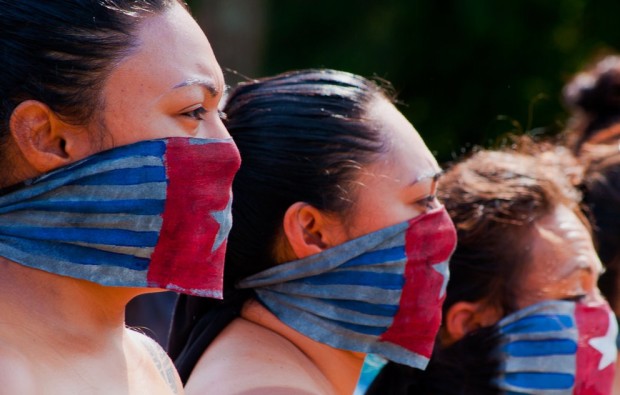

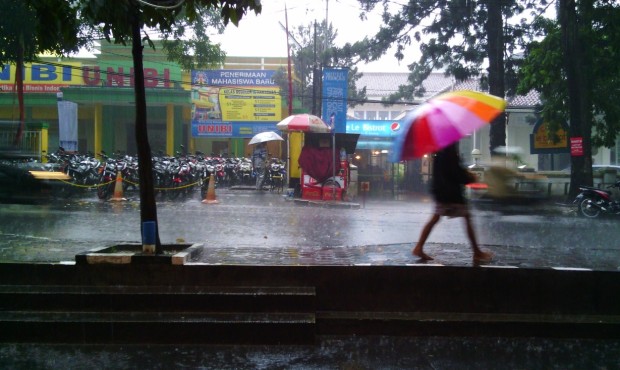
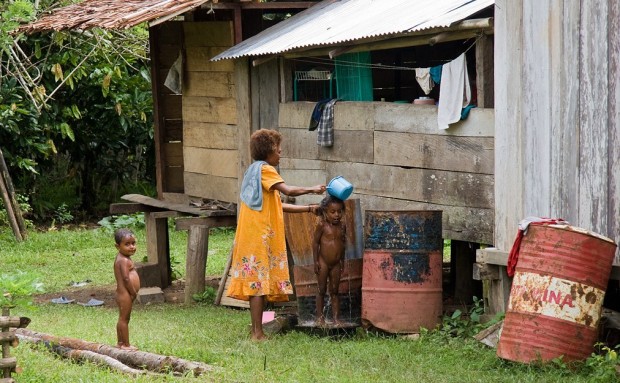
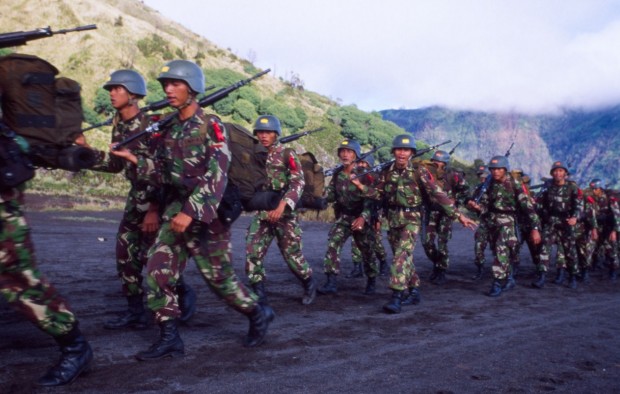

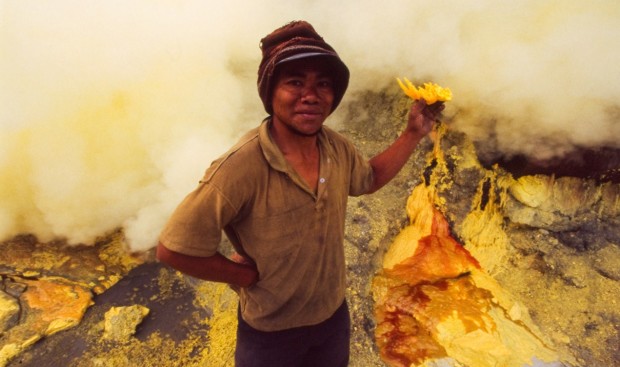
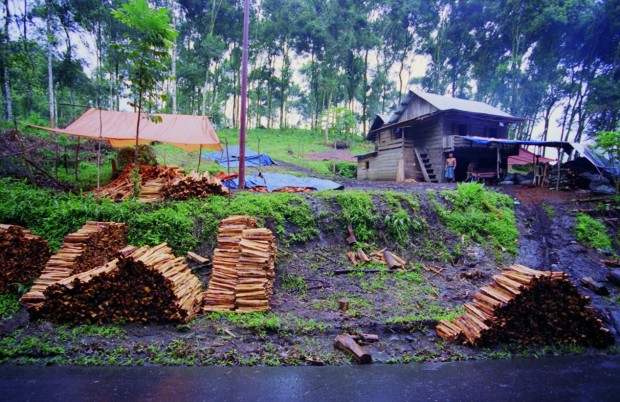
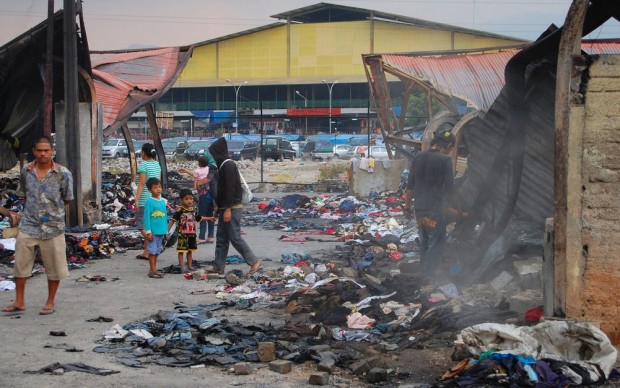











One Response to Jokowi’s Indonesia: Prime Example of Global Neoliberalism’s Failure
You must be logged in to post a comment Login